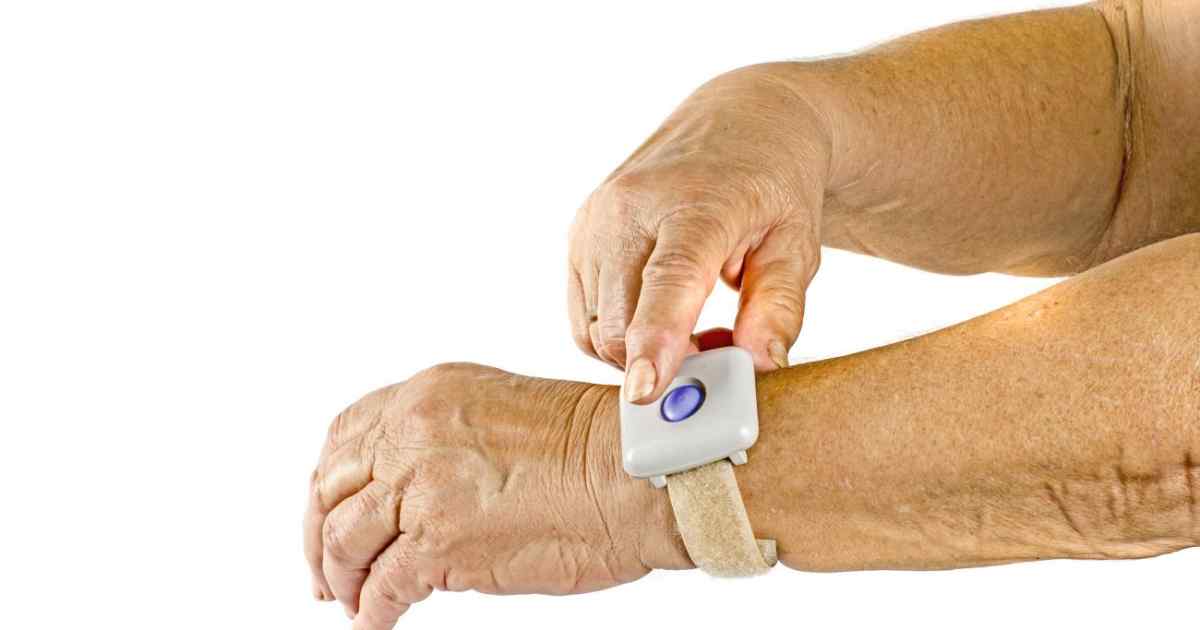What is a medical alert system and how do they work? There are many types of medical alert systems available. If you want to choose the best option for an elderly loved one, you can learn about medical alert systems with an online search right now.
These innovative systems can allow elderly individuals to maintain a healthy independence safely. All of this is accomplished while giving their loved ones the peace of mind that they will receive immediate care in the event of an accident.
What is a Medical Alert System?
Medical alert systems got their start in the 1970s. However, they were very simplistic at that time, consisting mainly of a push-button device worn around the neck and integrated with the home telephone line. Today’s medical alert systems are complex and technologically advanced to ensure complete peace of mind for the family members of elderly individuals living alone.
Medical alert systems today can still include wearable push-button devices for convenience. However, most also come with multiple buttons that can be installed around the home in various central locations. Additionally, emergency alert systems can now be integrated with full-fledged call centers that can have emergency medical assistance on the way within seconds if an emergency occurs. Aside from contacting emergency medical personnel, these systems can also be set up to automatically contact a trusted caregiver in the event of a non-emergency situation.
The Benefits of a Medical Alert System
The majority of elderly or disabled adults do not want to give up their independence simply because they have health issues or are getting older. Many elderly people express the desire to live on their own without sacrificing their dignity in these situations. However, it is still necessary to have qualified help on standby to provide peace of mind for all parties involved.
What to Look for in Buying a Medical Alert System
In order to determine which medical alert system will be right for your specific needs, you will have to carefully analyze the circumstances your loved one is facing.
Sensors for Fall Detection
Some of today’s medical alert systems come equipped with sensors that can detect if a loved one has fallen or injured themselves. In this case, an emergency call can be prompted to get an ambulance or other professionals on the way promptly.
Monitoring of Vital Signs
Some medical alert systems can also periodically monitor important vital signs such as pulse, oxygen levels, heart rate, and blood pressure. If any of these numbers display outside a normal range, the device can let emergency personnel or family caregivers know.
Call for Help to Emergency Services
Contacting emergency responders, such as an ambulance or fire truck, is a vital feature of medical alert systems and the main reason they are called upon for use. Many of today’s systems are integrated with a 24/7 call center staffed with well-trained personnel capable of providing life-saving assistance throughout emergencies.
GPS Tracking
GPS tracking services can be very beneficial if your loved one still drives from time to time. This service can utilize real-time GPS location tracking so that you can know where your loved one is when he or she leaves home. The system can then call for help if your loved one travels into unfamiliar areas or appears to be lost.
Daily Check-in and Activity Monitoring
Some medical alert systems provide an option for a daily check-in. This can consist of a simple phone call to learn how your loved one is doing that day and if there is anything they may need assistance with.
Top Medical Alert Systems
There are now many companies that offer medical alert systems. This can make it difficult to determine which system might be the best choice for your family’s particular needs.
Rescue Alert
Rescue Alert comes with a monthly fee between $29 and $45, depending on the type of phone line or device you are integrating the system with. Rescue Alert offers a range of 600 feet and includes a mobile 911 phone. There is also no minimum obligation or activation fee. In-house monitoring offers additional peace of mind.
Life Alert
Life Alert comes with a monthly fee between $50 and $70, depending on whether it will be integrated with a landline, cellular, or mobile device. It offers a range of 300 feet and has the capability of calling emergency personnel as needed. In-house monitoring offers additional peace of mind that all incidences requiring help will be handled promptly. Life Alert comes with a 36-month contract. However, this contract becomes void if the individual must enter full-time nursing care.
Medical Alert
Medical Alert comes with a monthly fee between $30 and $40, depending on the type of phone system being used. It offers a range of 600 feet, comes with a mobile 911 phone, and can automatically detect falls. No activation or cancellation fees exist, and the monitoring services are outsourced.
LifeStation
LifeStation comes with a monthly fee between $26 and $30, depending on whether you choose to integrate with a landline or mobile device. LifeStation offers a range of 500 feet, comes with a mobile 911 phone, and no activation or cancellation fees. In-house monitoring and call centers offer additional peace of mind for you and your loved ones.
Advancements in technology have now made the privilege of caring for elderly or disabled loves ones much easier. It is easy to understand why you as the caregiver want to ensure you get the best medical alert system for the specific needs of your loved ones. By carefully considering your precise needs and the benefits offered by the different systems mentioned above, you will be able to select the ideal medical alert system for your family. There is no greater peace of mind than knowing your loved ones will be well-cared for in the event of an emergency or accident.
